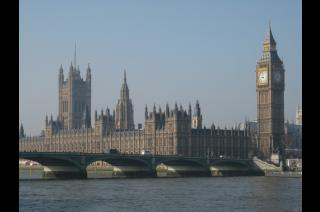UNA-UK's report, "Keeping Britain Global" makes the case that Britain needs to champion global values, and invest in the health of our international system andmakes reccomendations across five key areas where we believe the UK can make a useful contribution at a global level, and where we feel Britain’s willingness to take action will provide a fair and appropriate test of Britain’s support for the rules-based international order. This is what we have to say about:
Human Rights
The scale of violations currently facing the international community means that the need for a strong UN centred response to human rights challenges is as strong as ever. Created in 2006 , the UN Human Rights Council (HRC) is the body to do just that. It has achieved a significant amount during the first 10 years of its existence, but it needs the support of the UK if it is to succeed.
The UK has shown leadership at the UN Human Rights Council on a number of issues, notably the prevention of violence against women and girls, modern slavery, Sri Lanka and the mandate of the Special Rapporteur on Iran. Most recently the UK played a pivotal role in defeating an attempt to suspend the mandate of the Independent Expert on sexual orientation and gender identity.The UK also does much work to promote human rights internationally, with the Department for International Development continuing to contribute £2.5 million to the Office of the High Commissioner for Human Rights.
However, consistency on human rights is a vital component of any attempt to globally project British values. Shortcomings across three broad areas threaten to undermine the UK’s global credibility and prevent the positive work the Government is doing in other areas from having its full impact. These include missed opportunities for the UK to strengthen international human rights mechanisms; concerns over the future of human rights law in the UK; and the sense that there has been a deprioritisation of human rights in UK foreign policy.
While the UK’s championing of some human rights issues in international fora has been commendable, on others it has been notably silent. The UK is rarely critical of allies and this selectivity undermines the credibility of UK criticism of other nations. The Government distances itself from ministers who voice private criticism of allies, even when justified. The UK has also applied diplomatic pressure in an attempt to drop references to torture in a Swiss-authored joint statement on Bahrain in February 2016.
In 2014 the United Kingdom campaigned against a modest resolution in the Human Rights Council on Unmanned Aerial Combat Vehicles or drones. By citing a procedural question of jurisdiction, the United Kingdom copied precisely the tactics that have been used over a number of years by opponents of the Human Rights Council to limit the Council’s scope and power. In so doing it further legitimised those tactics.
At the national level, UNA-UK is concerned by Government proposals to “scrap” the 1998 Human Rights Act and replace it with an (as yet) unspecified British Bill of Rights. Proposals by senior ministers for the UK to withdraw from the European Convention on Human Rights have amplified these concerns. While the details of such proposals remain unclear, fears over the future of human rights in the UK are fuelled by a broader, increasingly negative debate around human rights. For example, the Foreign Affairs Select Committee has expressed concern that human rights have been deprioritised by the Government. While UNA-UK is not wedded to any particular piece of domestic legislation, we are concerned that the proposed changes may weaken human rights protections. Such rhetoric has already had an impact internationally, with senior Government officials in Kenya and Russia pointing to the UK’s example as justification for asserting their nation’s sovereignty over international human rights mechanisms.
Recommendations
The UK should:
- Ensure that any changes to human rights law serve to strengthen, not weaken, universal human rights protections in the United Kingdom and should refrain from introducing any human rights exemptions based on extra-territoriality
- Take steps to strengthen the Human Rights Council and engage constructively with all UN human rights mechanisms, including UN Special Procedures, and serve as an example to other states as reccomended in our recent report.





